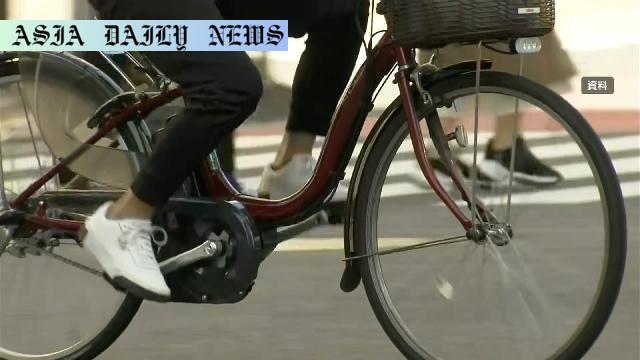Cyclist Fines: Japan introduces blue ticket fines starting April 1 next year for minor traffic violations to improve road safety.
The new ‘blue ticket’ system penalizes cyclists for minor road violations.
Cyclists can avoid criminal charges by paying fines.
Fines for violations like phone usage, malfunctioning brakes, and ignoring red lights are introduced.

The Introduction of Blue Ticket Fines in Japan
The National Police Agency in Japan is primed to implement a pivotal change targeting cycling violations from April 1 next year. With the enactment of ‘blue ticket’ fines, cyclists who commit minor traffic offenses will face monetary penalties as part of a revised Road Traffic Act. Approved by Japan’s Diet last year, the fine system is designed to align with an ongoing effort to mitigate the increasing number of bicycle-related road incidents. This method mirrors existing penalty systems that govern cars and motorcycles.
Details of the Fines and Targeted Offenses
The newly introduced fines cover 113 specific cycling violations, enforcing steep monetary consequences for easily avoidable mistakes. For instance, cycling while using a smartphone will incur a penalty of 12,000 yen, which equates to about 84 dollars. Other common infractions, such as ignoring traffic signals, riding bicycles in the wrong direction, or using sidewalks, will cost violators 6,000 yen (approximately 42 dollars) per occurrence.
Unique Bicycle Infractions and Concerns
The legislation also includes fines for offenses unique to bicycles. Notably, riding a bike with malfunctioning brakes or other inadequate parts will result in a 5,000 yen penalty. Similarly, cyclists riding side by side will face a 3,000 yen fine. These adjustments underscore the growing recognition by law enforcement of bicycles as serious players in traffic safety. By addressing issues particular to cycling, the government aims to foster a safer environment for all road users and create better standards for maintenance and discipline among cyclists.
Public Consultation and Impending Changes
As the enforcement date nears, officials are taking steps to incorporate public feedback. The National Police Agency is set to begin accepting public comments, ensuring the measures are well-understood and deemed fair by citizens. This rare step of seeking public consultation highlights the government’s intent on enacting a law that is not only comprehensive but also aligns with the collective interests of all stakeholders involved. Once finalized, the relevant government ordinances under this policy will reflect these fine-tuned adjustments.
Implementation and Global Significance
Japan’s approach to cycling violations offers a glimpse into a forward-thinking system designed to address urban transportation challenges. By empowering citizens to correct minor violations through fines, Japan aims to strike a balance between enforcement and crime prevention. If successful, this model could inspire similar strategies worldwide, emphasizing bicycle safety in an increasingly traffic-congested world. The clear message is that cycling, while eco-friendly and convenient, still requires adherence to rules for safety and harmony on the roads.



Commentary
Recognizing the Need for Change
This recent move by Japan to impose fines on cycling violations underscores the government’s foresight in tackling an often-overlooked aspect of road safety. Bicycle usage is on the rise, thanks in part to environmental awareness and a push towards healthier lifestyles. However, with great opportunities come great responsibilities. Like motorists, cyclists are equally accountable for ensuring the safety of themselves and others. By introducing the ‘blue ticket’ fines, Japan’s policymakers have displayed both awareness and diligence in addressing the growing misuse of bicycles on public roads.
Encouraging Personal Responsibility Among Cyclists
One of the most positive aspects of this initiative is its aim to promote personal responsibility. Cyclists, too often considered as wholly exempt from the laws regulating motor vehicles, are now being held to stricter standards. Penalties like those for malfunctioning brakes or riding while distracted by a smartphone will encourage individuals to take greater care of their equipment and behaviors. Just as car owners bear the burden of ensuring their vehicles are street-legal, cyclists must align their conduct with safety norms for the greater good.
Setting an Example for the Global Community
Japan’s comprehensive measures certainly have potential lessons to offer globally. Many countries face challenges stemming from reckless cycling, particularly in urban centers. The introduction of such a well-outlined and practical law highlights a growing trend towards safety-conscious urban planning. Other nations should carefully observe the outcomes of this initiative, possibly even adopting similar measures in their efforts to guarantee safer roads.
The Road Ahead
Looking ahead, this policy represents not only a step towards improved traffic conditions but also a cultural shift. It reinforces the idea that while bicycles are an essential component of a sustainable future, they must coexist safely within the urban traffic ecosystem. The invitation for public feedback is also a commendable approach, ensuring the law benefits everyone and resonates with citizens’ concerns. This initiative can serve as a guidepost for future-oriented policies aimed at harmonizing the interplay between various forms of road transportation.